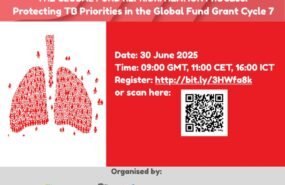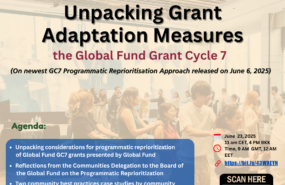REPUBLIC OF BELARUS: Reassessment of the sustainability of the opioid agonist therapy programme within the context of transition from donor support to domestic funding
- 12.04.2023 19:23
- Post Views: 311
The opioid agonist maintenance therapy programme (OAT) has been implemented in the Republic of Belarus since 2007. It was introduced as part of the projects supported by the Global Fund to Fight AIDS, Tuberculosis and Malaria. The Republic of Belarus is committed to the provision of universal health coverage (UHC) which includes OAT. The therapy is provided free of charge at State narcology clinics. As of January 1, 2022, there were 20 methadone maintenance therapy sites in the country serving 707 clients.
OAT in Belarus was fully financed by the Global Fund up until 2015. In 2018, the State committed itself to progressively increasing public health spending to achieve national goals under UHC and pledged to increase co-financing, especially that of the main costs of the national HIV and tuberculosis (TB) responses. At that point, the State took over the financing of the work of substitution therapy sites, with the exception of methadone procurement. In 2022, the State started to pay for OAT medication as well, and the Global Fund now only supports the follow-up of OAT clients to increase their adherence to HIV treatment.
The aim of this study is to evaluate the sustainability of the OAT programme within the context of its transition from Global Fund support to national funding and to identify strengths, barriers, challenges and risks, as well as opportunities to enhance the programme’s sustainability. The first sustainability analysis was conducted during February–March 2020 and was based on the framework and methodology designed by the Eurasian Harm Reduction Association (EHRA).
The current analysis is a follow-up study aimed at examining the main changes that have occurred in the programme over the last two years. The current assessment is mainly focused on the success achieved and the problems encountered during efforts to ensure sustainability; on the relevant conditions and mechanisms for transition; on gaps in the finances and human resources and other programmatic data relevant to the transition process; and on an analysis of the confirmed transition plans.
The following provides a summary of progress towards ensuring the sustainability of the OAT programme in Belarus by the three thematic areas reviewed in the course of this assessment:

Based on this assessment, the recommendations have been developed to enhance the sustainability of the OAT programme in Belarus.
You may access the report on the assessment of OAT sustainability in Republic of Belarus in English and Russian by following the links:
Services for migrants and refugees from Ukraine – HIV/TB care with a focus on key populations
Due to the increasing flows of refugees from Ukraine because of Russia’s invasion of Ukraine, the EECA Regional Platform created a spreadsheet to fill contacts details of face-to-face and online services for refugees and migrants (with a focus on HIV/TB care and key population groups).
Regional Platform – EECA
This web-resource is a part of new regional communication and coordination project “Regional Civil Society and Community Support, Coordination and Communication Platform - EECA”, implemented by Eurasian Harm Reduction Association (EHRA).
Tags
See also
-
Webinar: Using Global Fund's Data for Advocacy 12.06.2025 12:00
-
GC7 Grant Reprioritization: Updated Timelines 10.06.2025 14:37
-
GFAN reports back: 53rd Global Fund Board meeting 26.05.2025 14:26







